The Bedouins of Israel, leaders in living together
- Caroline Haïat

- Jul 18, 2024
- 5 min read
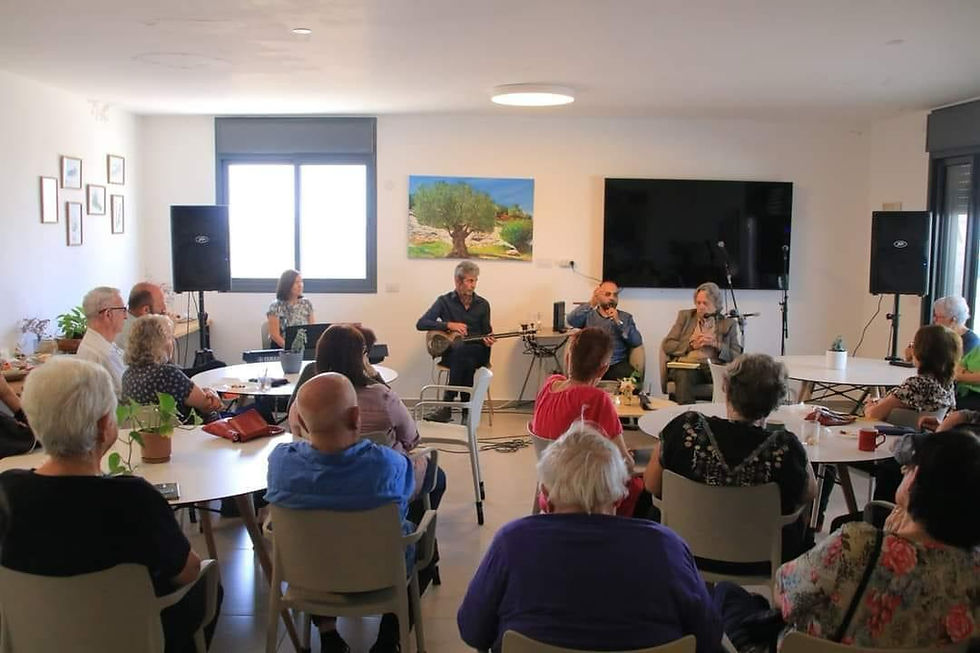
When Hamas infiltrated Israel on the morning of October 7 to violently attack the inhabitants of the southern kibbutzim and participants in the Nova festival in Reim, the Bedouins were the first to mobilize to save Jews from massacre, where the army and security services had failed. Israel's Bedouins have themselves paid a heavy price for the war, with 22 killed and four still held hostage in Gaza. Hand in hand with the Jewish community, the Bedouins work every day through various actions and projects to consolidate living together in the region and prove that coexistence is the only path to peace. Since the beginning of the war, several remarkable initiatives have been set up, mainly in three sectors: cultural, social and educational, to show that Jews and Arabs are united against a common enemy. We met influential figures from Bedouin society who are advocating change and conveying a positive image of the Arab-Jewish partnership, which today, more than ever, deserves to be valued.
The first donation center
Just a few days after the outbreak of war, volunteers from the Bedouin community of Rahat in the Negev set up the country's very first donation center, where Jews and Arabs put together food parcels and humanitarian aid for families in the south who had been hard hit by the tragedy. The initiative was organized in Rahat's cultural palace by Foad Zeadna, director of the town's community center. His cousin and son were kidnapped by Hamas while working in Holit, a kibbutz on the edge of Gaza, while another family member was murdered in Zikim. Foad decided to take immediate action and called on thousands of volunteers from all over the country, from Jewish and Arab sectors, who for almost 10 months have been packing hundreds of food packages for families affected by terrorism.
“Our social fabric is made up of a mosaic of identities with one common denominator: we believe in caring for others, reciprocity, solidarity and acceptance of others”, explains Foad Zeadna.

A forum to support victims of war
Meanwhile, Lieutenant-Colonel Wahid Ahoziil and Rotem Shurtz Borowitz, under the aegis of the Bedouin Society Resilience Center headed by Ibrahim Elatauna, have set up a Jewish-Arab forum to support victims of the war and their families. This association offers community support and psychosocial assistance based on coexistence. The forum provides therapeutic and community support in the form of a tailored response to extreme stress, trauma and anxiety, through the work of therapists and psychologists. The forum also offers special support for families, facilitating direct contact with the Israeli army or relevant authorities, mediation and assistance. Additional financial aid is also available.
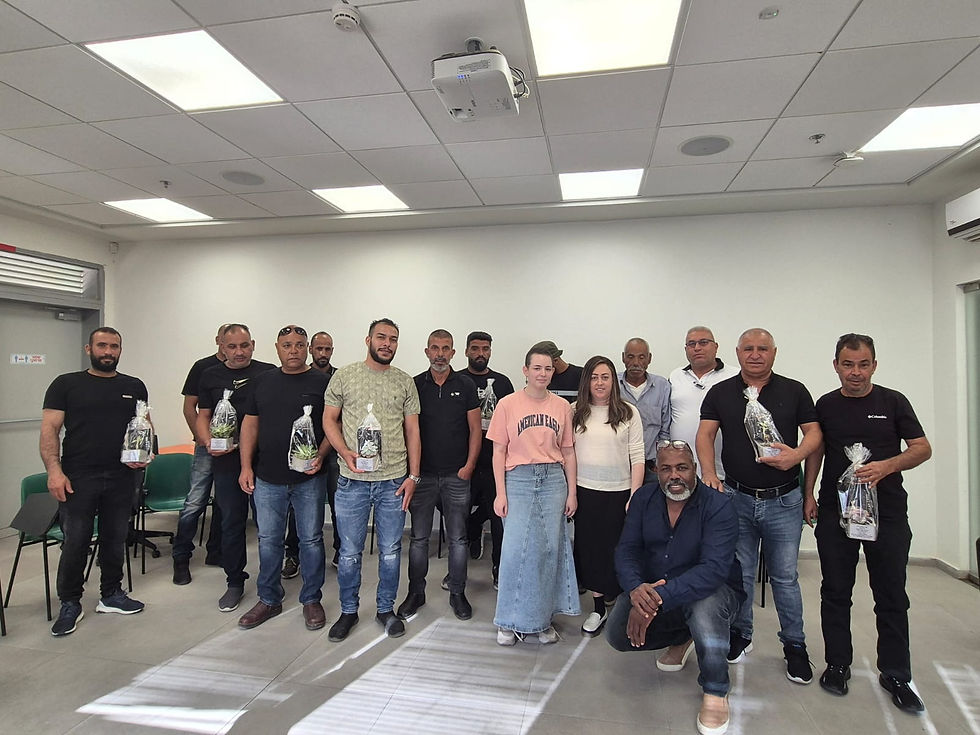
“We have been directly helping families affected by the war, whether on a psychological, financial or educational level, and today we are also helping the heroes of the Bedouin community who defended the country; around 3,500 Bedouins work with Jews in localities close to Gaza and our bond is unbreakable. The Bedouin community has mobilized to help those affected by the tragedy, notably through donations”, declared Wahid Ahoziil.
Unwavering solidarity
“Since October 7, I've been giving a lot of talks in different communities about bringing people together. Bedouins and Jews don't need a war to live in peace, because we act with one voice and cooperate on a daily basis”, he stresses. “The problem lies with the leaders, who undermine relations between Jews and Arabs, encourage mistrust and continue to destroy Bedouin homes. But in reality, the Arab community has been enormously involved in the collective effort since October 7”, says Wahid.
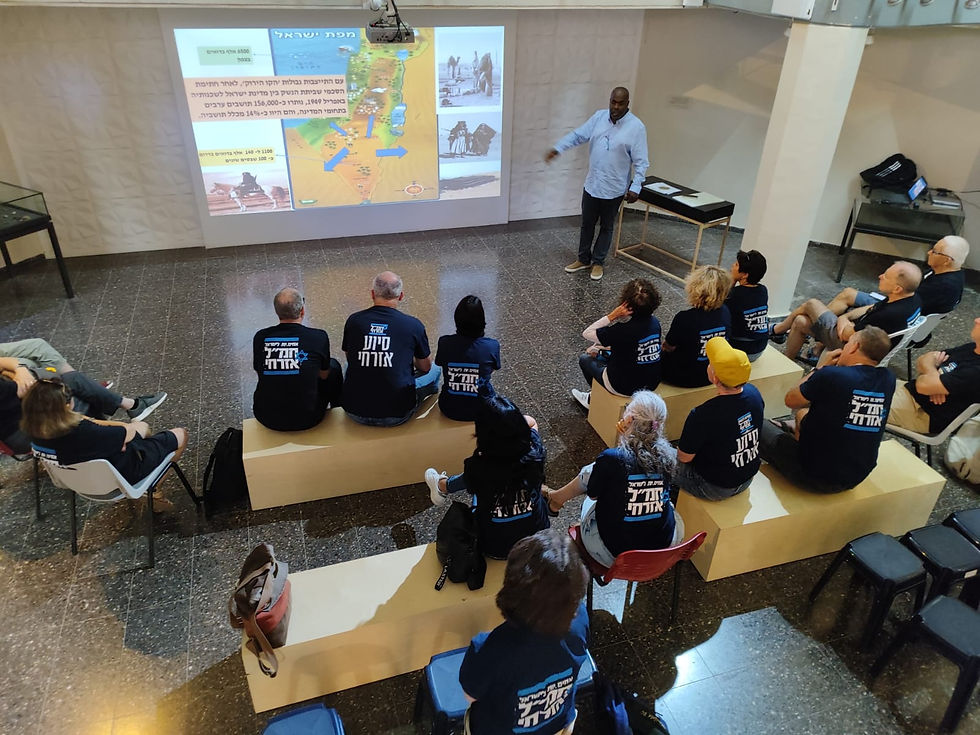
From the very first moments of the war, many Bedouins saved Jews by hiding them in their farms, personally picking them up by car at the Nova festival as terrorists pursued them, or offering them free accommodation, like Sami Alkarnawi, owner of five hotels in Mitzpe Ramon. At his own expense, Sami provided accommodation for the inhabitants of localities close to Gaza. Thousands of people, including families fleeing the bombardments, have found refuge in his establishments.
While social initiatives have continued to multiply since October 7, culture has a key role in maintaining Arab-Jewish relations in times of war.
The Alyamama mixed theater: art as a way out
The Alyamama Arab-Jewish theater, created in May 2021 following the riots in mixed cities, is a true example of living together in the region, at the initiative of its executive director Daniel Alter. The aim is to strengthen the community and support citizens through art, especially in these difficult times. Alyamama has developed numerous cultural projects, including “Shabbat Tarbut”, which brings together residents from various southern communities and promotes unity by enabling them to enjoy moments of joy and escape harsh reality. An exciting musical encounter was organized in Kiryat Gat with evacuees from Lachish and Nir Oz, and musicians Larisa and Eliyahu Peretz. The shows created by Alyamama also aim to promote unity and build bridges between the Arab and Jewish communities of the Negev.
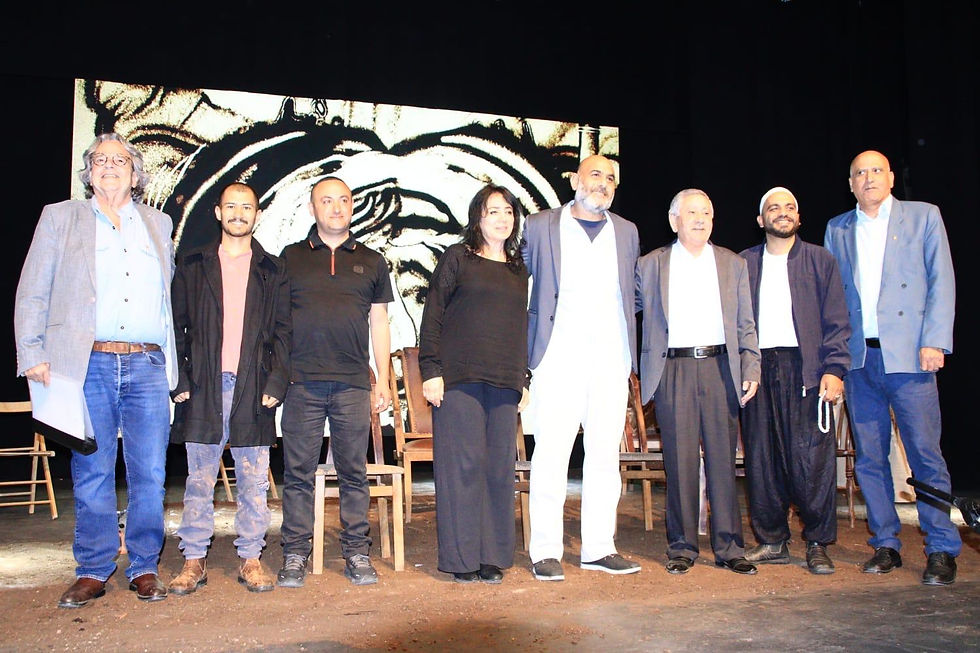
This theater emphasizes the power of art to bring people together and strengthen the sense of solidarity, while providing a space for expression by preserving culture and heritage. “Alyamama has become an essential cultural hub in the Negev, and a model of integration between communities. The theater, whose members are both Arabs and Jews, is not only a unique artistic center, but also a meeting place,” asserts Daniel Alter.
Founders Kaid Abulatif and Daniel Alter, along with their entire team, invest a great deal of effort in promoting shows, workshops and activities for all audiences. These include plays that address social, cultural and personal issues, with the aim of increasing mutual understanding between communities. In addition, Alyamama sets up educational projects for the younger generation, providing artistic and cultural tools for their social expansion.
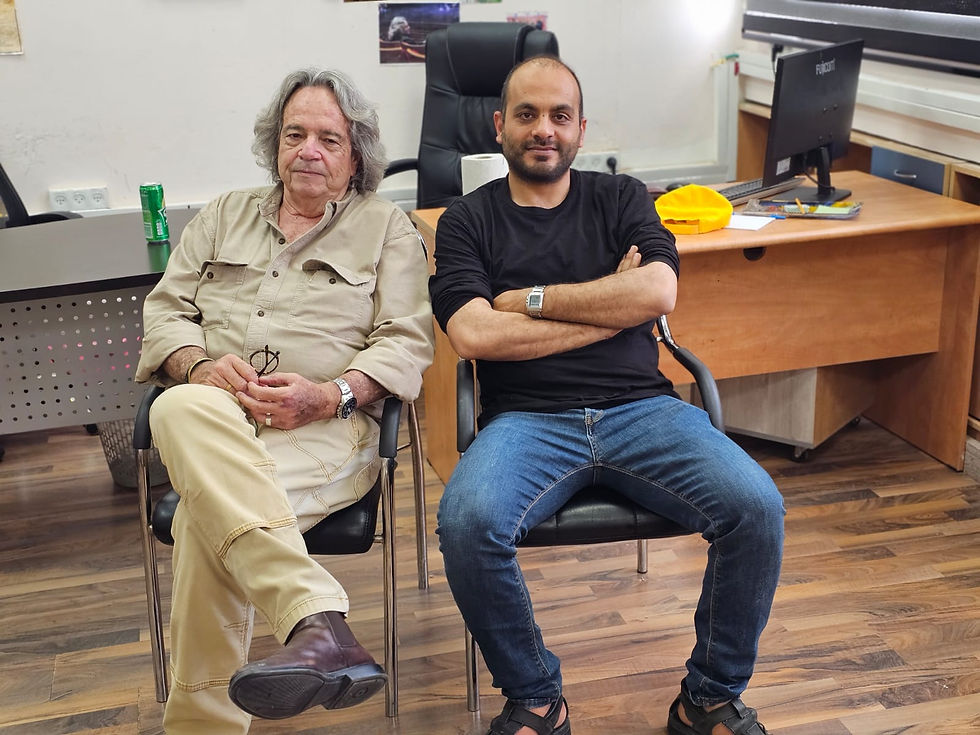
“Alyamama is much more than a theater, it symbolizes a shared, creative society that operates from a deep commitment to connecting Jews and Arabs through culture. Here, people experience the power of art as a tool for dialogue and collaboration,” explains Kaid Abulatif, co-founder of the theater and actor. His brother Ahmad, who served in the IDF and fell in Gaza last January, was a strong advocate of living together.
“We firmly believe that reality can change in a positive way, and to do so we highlight the unique culture of the people of Rahat and the surrounding area and promote an open and respectful discourse,” said Kaid.
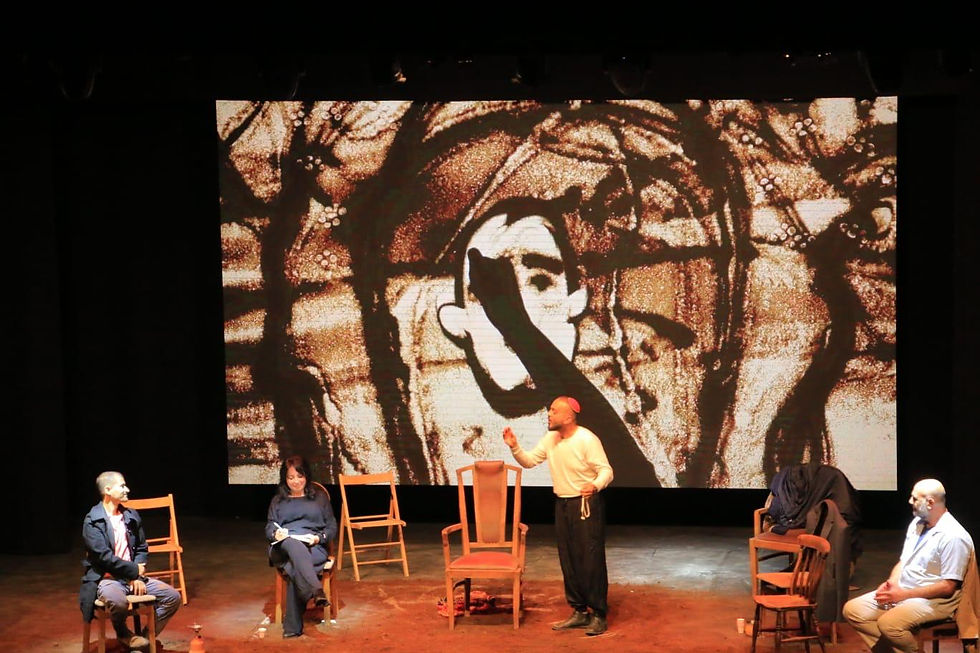
Alyamama won the Best Show award at the Sarajevo International Theater Festival in Bosnia with “The Last Khan”: Navi and Nadi, quarantined after a worldwide epidemic, struggle to survive in the new reality. Alyamama's next show, “Yam Rahat”, in partnership with the Jerusalem Academy of Dance and Music, takes place on Tuesday August 20 at Mahane Yehuda in Jerusalem. Jewish dancers and Arab actors offer a revisited version of traditional Dahiya dance set to prose texts.
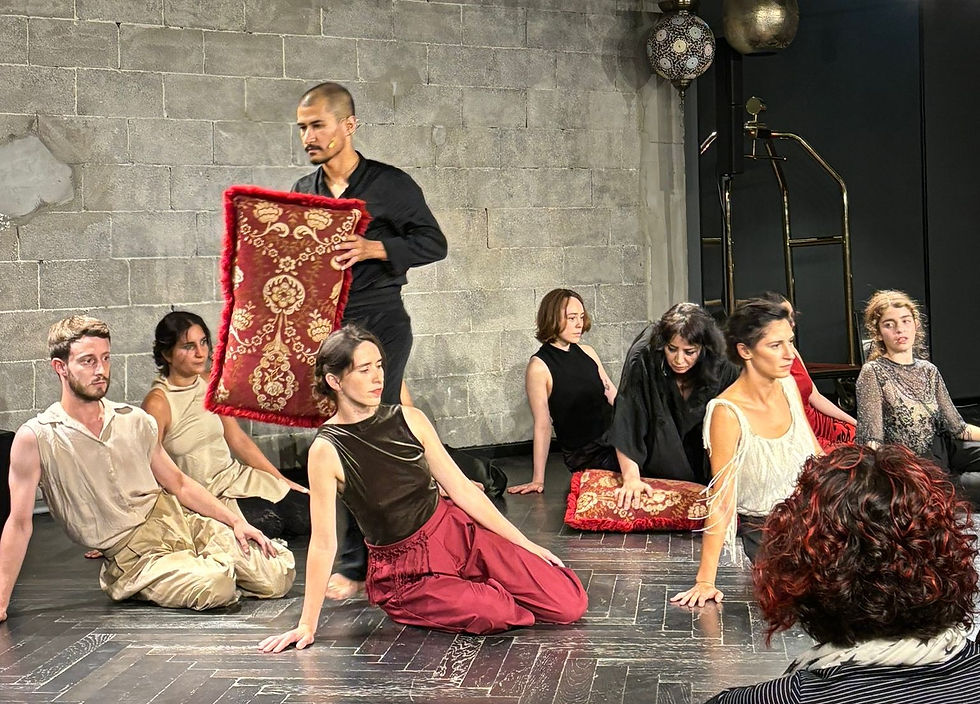
Unique cultural partnerships
The Bedouin society is constantly promoting unique collaborations to foster its strong bond with the Jewish community. This month, a historic memorandum of understanding was signed between the Rahat Community Center and the National Library in Jerusalem. The memorandum of understanding includes research cooperation, scientific workshops and conferences, and the exchange of scientific publications between Rahat and Jerusalem.
Film and theater festivals, as well as coffee and music festivals, are also regularly organized to promote Bedouin culture and its riches.
Next week, a Jewish-Arab concert will be held at Ben-Gurion University in Beersheva in memory of Shlomi Mathias and Shahar Mathias-Troan, murdered on October 7 in their home on Kibbutz Holit. As part of the concert to be held in their honor each year from now on, a prize will be awarded to musicians who promote living together as Jews and Arabs through their work.
Through diverse and productive activities, the Bedouin community is paving the way for a change of perspective in the region in favor of the unity of the Israeli people.
Caroline Haïat




Comments